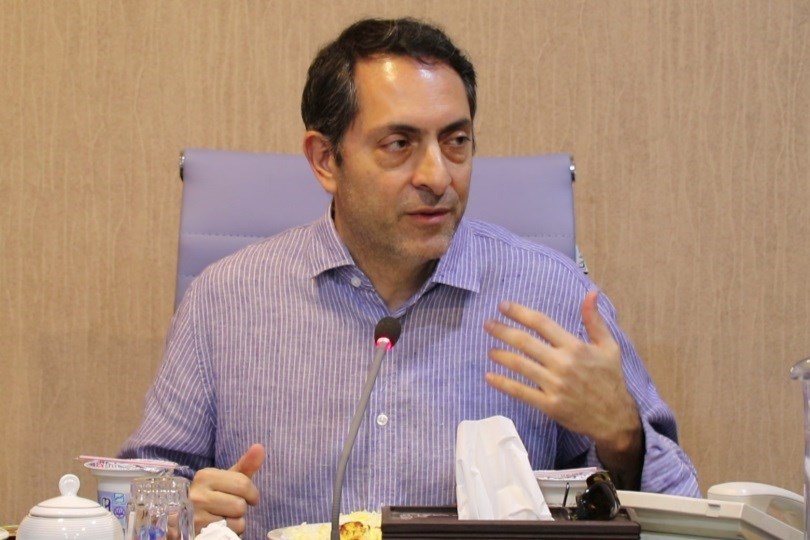Trump knows Saudi Arabia can’t harm U.S.: Zaccara

TEHRAN - Research assistant professor in Qatar University say Trump bullies Saudi Arabia because he knows Riyadh cannot do anything to harm U.S.
The Saudi Arabian monarchy would fall “within two weeks” if it wasn’t for the military support that the U.S. has provided to the Persian Gulf kingdom over the decades, U.S. President Donald Trump noted in graceless remarks to the King couple of days ago.
To discuss the issue we reached out to Dr. Luciano Zaccara, research assistant professor in Qatar University.
Here is the full text of his interview:
Q: President Trump once again humiliated Saudi Arabia in his recent speech, and said: If America does not exist, Saudi Arabia will disappear within a few days, and Saudi Arabia owes its stability and security to the United States. Why did Trump repeat this statement?
A: Trump foreign policy towards Middle East in general, and Saudi in particular, ambiguous and confusing since the beginning of his term. Moreover, his diplomatic style has always been bully towards the rest of the world, even those which are actually partners and allies in diverse economic, military and strategic framework, such as European Union, Canada, Japan or Mexico. I am then not surprised by the fact that on one side the current U.S. administration is supporting Saudi Arabia, but on the other hand it is repeating the narrative that the U.S. is its main military supplier and that has a cost to be paid. On Trump’s vision, this is not considered a humiliation per se, but recognizing how powerful is the U.S. that can even bully its own allies in the region, knowing they cannot do anything to harm them neither to retaliate nor cut ties with the U.S.
Q: Mohammad bin Salman said in response: Working with Trump is enjoyable. Why did he take such a weak stance and did not even criticize Trump?
A: Mohamed Bin Salman is aware of Trump’s style of doing business and politics, and he would not fall in the trap of rising the tone of aggressive narrative against the U.S., moreover if the kind of criticism coming from Trump is not related to any aspect including internal politics or foreign policy, as it happened recently with Canada, with which Saudi took a more pro-active reaction reducing the collaboration with the government and stop sending students to study in that country because Canadian criticism on the human rights records of the kingdom.
Q: Saudi Arabia has been relying on the United States in terms of security for many years. And this is the reason why Saudi foreign policy is under American influence. In view of this security outsourcing by Saudis, what will be the harmful effects on their security in the long run?
A: I don’t see any possible harm in the long term as a result of this. Simply, business are business, Saudi Arabia needs to purchase the best technology for its army, and the best provider has been the U.S. Under Trump’s administration the military industry is a priority, and selling equipment to Saudi Arabia is a must, and nothing will change this equation.
Q: Former President Barack Obama addressed countries like Saudi Arabia that your security threat is inside your own countries and not foreign threats. In fact, Obama's reference was to human security, which includes political development, individual liberties, and so on. However, for these countries, the security of the ruling political system (state security) is in the top priority. What kind of security in these countries is in the top priority for the United States?
A: It is true that both Obama and Trump had a very different approach towards Saudi Arabia in terms of which were the main threats for the stability of the ruling family, and at the end, the continuation of the current regime. While Obama focused on the internal threats, Trump is targeting the external ones, among them Iran, but at the end both were interested in maintaining the status quo in the Arabian Peninsula. It is also evident that this diverse approach abovementioned drove to a diverse foreign policy towards Saudi Arabia, and that was evident in the way that Saudis labeled Obama as a “traitor” who abandoned its allies in the region at their own fate when the JCPOA was signed. On the other hand, Trump was received as a “savior” who is focusing on the real problems that Saudi and the region is facing, according to them, which is the expansion of the Iranian influence in the region. The MESA initiative by the U.S. is a very clear example of what is considered by the U.S. the main threat to the stability of the kingdom.
Leave a Comment